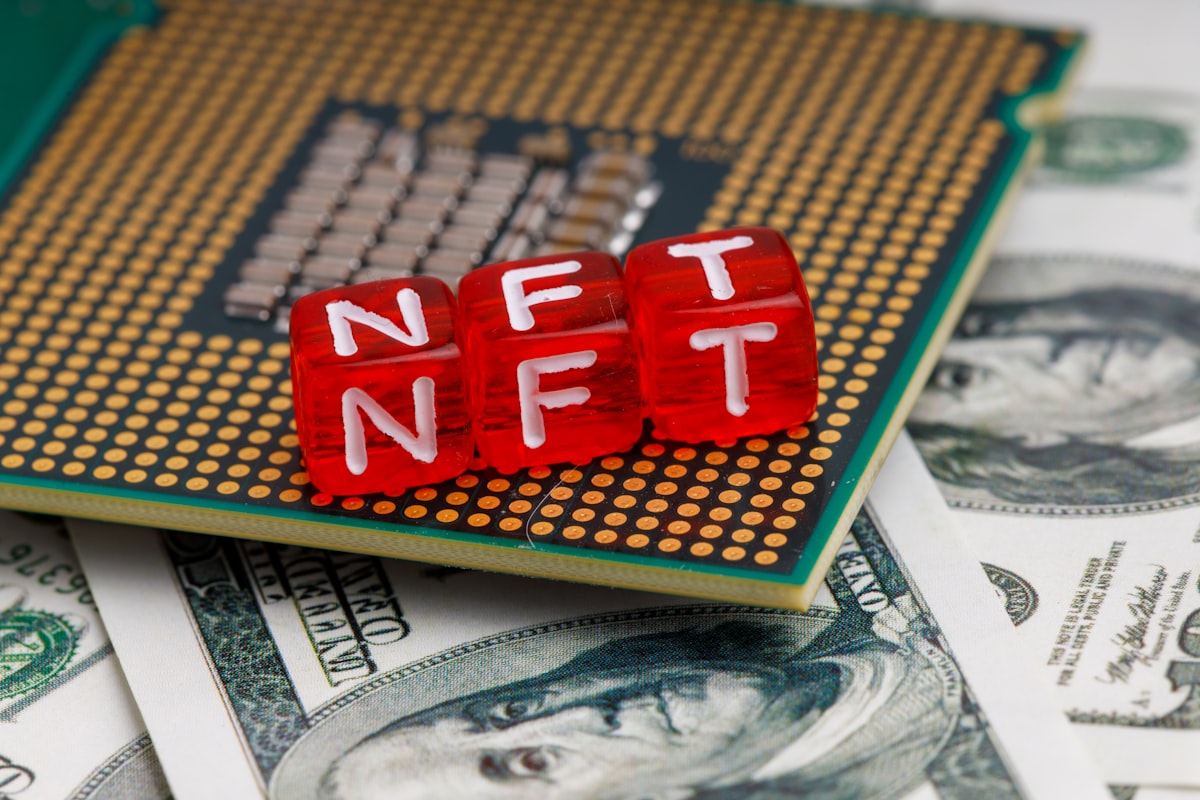Curious About NFTs?

Here’s a short, sweet look at this new technology and the industries it’s changing.
When NFTs entered mainstream conversations, they were met with excitement, skepticism, and multimillion dollar bidding wars. But what exactly are NFTs, and why are they such a big deal?
An NFT, or a non-fungible token, is a piece of data that represents something of value. That something could be anything: a gif, a voice memo, an island. Think of an NFT as a deed to a house. Whoever owns the deed owns the house. Whoever buys an NFT has proof that they own the asset it represents. This proof is stored on a blockchain, a secure, decentralized, public ledger.
Every NFT is completely unique, with metadata and security codes that are unlike any other. NFTs can also represent vastly different assets. While one ten dollar bill is exchangeable for any other 10 dollar bill, or while one Bitcoin has the same value as any other Bitcoin, the NFT of the first ever tweet is completely different from The Kings of Leon’s NFT album, which is completely different from the NFT of a picture of a penguin. Like all collectables, the value of these pieces is determined by how much people are willing to pay for them.
So what does someone get when they buy an NFT? That is determined by the NFT’s original creator.
Consider this. Someone who buys a painting is not entitled to sue anybody who reproduces it, or even entitled to display it to the public if the artist stipulated that the painting’s sale was for personal enjoyment only. Those rights belong to the piece’s creator. Similarly, buying an NFT does not automatically transfer the copyrights associated with the asset it represents to whoever bought the NFT. Unless otherwise specified at the time of sale, these rights belong to the creator of the NFT, whose information is a part of the NFT’s metadata even after it is sold.
This is important because NFT creators can retain their intellectual property even after a sale, exercising some control over how their creation is used or even collecting royalties from future sales of their NFT.
Say someone bought an NFT of a clipart rock. Just like the person who bought the physical painting, that person is not necessarily entitled to make copies of that image, punish others who do, or even post this clipart rock picture on a public website. An NFT creator can sell an NFT without selling the copyrights or intellectual property of the asset that the NFT represents. What the clipart rock NFT owner purchased was a certificate, or token, of authenticity and ownership which is logged in a blockchain ledger, effectively securing this digital ownership.
However, intellectual rights can be sold with or as NFTs. Once again, consider physical asset collection. If an artist sells not just their painting but also its rights to a buyer, that person is of course allowed to reproduce, display, or distribute the work as per the terms of their contract. NFTs work the same way. NFT creators are able to specify what rights are included within their NFT, which could include licensing rights, copyrights, and more. These parameters are determined by the NFT creator and embedded within the NFT’s smart contract. The flexibility and traceability of NFTs make them a great medium for selling intangible (such as licensing rights or, yes, pixelated images) or cumbersome (such as precious goods or real estate) assets.
NFT technology could reshape established industries. NFTs have been used to streamline real estate deals and are upgrading in-game purchases for many popular videogames. As these crypto assets become better understood, more and more industries are sure to adopt this flexible technology.
At ScieNFT, we believe NFTs can be used to make the scientific publishing world more equitable by allowing researchers to capture funding and even sell the rights to their work with NFT sales. Our open-source platform marketplace reserves researchers’ intellectual property while making cutting-edge science widely available, and our revolutionary peer review system ensures quality while promoting discourse.





